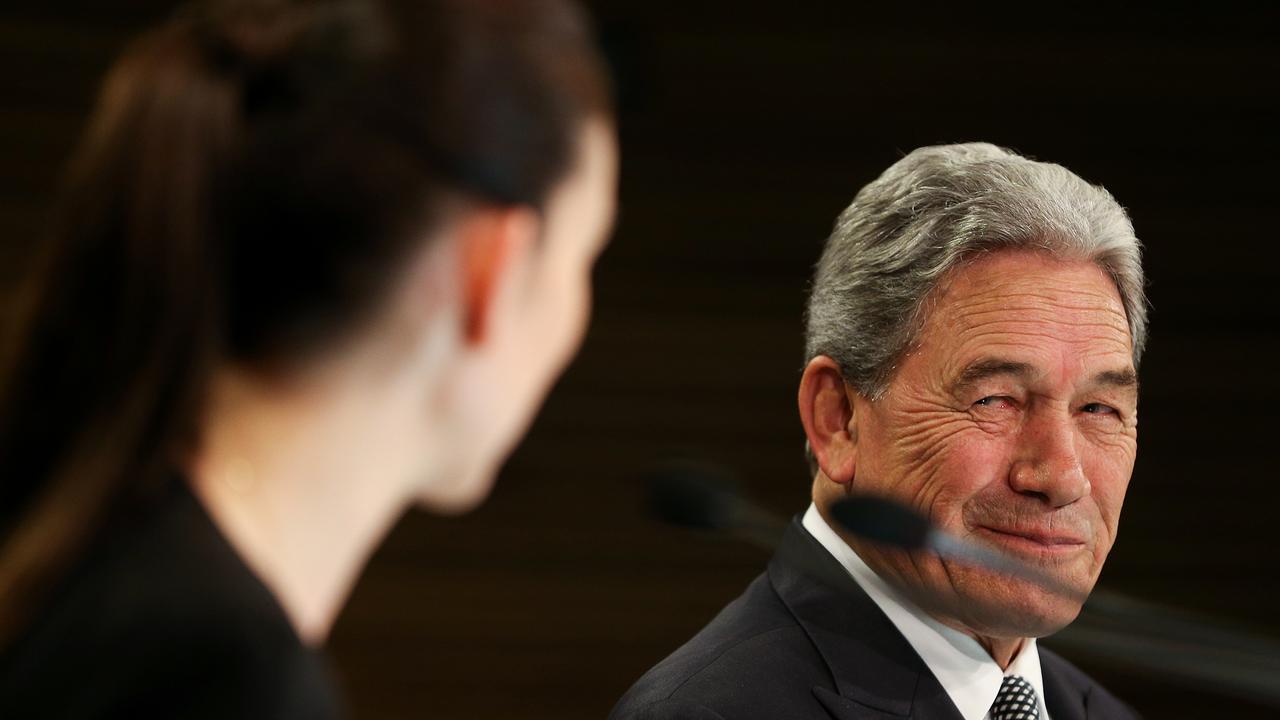Facebook friends no substitute for the real thing for a premier under pressure
SOCIAL networking sites have become the new scourge of tech-savvy politicians.
Garry Bailey in Hobart's The Mercury yesterday:
AS a politician passionate about the potential of technology, it was hardly a shock that [Tasmanian premier] David Bartlett would use Facebook to announce he was standing down. Mr Bartlett was an enthusiastic early adopter and inveterate user of social networks to get his message across. He has many friends online but he could not always claim the same within politics.
Gen-Xers not welcome in Tasmanian politics. Bruce Montgomery on crickey.com yesterday:
BARTLETT became a father in his late 30s and premier at 40, after only four years in the parliament. That is his main problem. Orthodoxy in Tasmania is that backbenchers have toddlers, ministers have teenagers, but premiers have empty nests, favourite restaurants and burn the midnight oil. Or, as [Lara] Giddings and Julia Gillard prefer, you dedicate your life to politics from the start. Bartlett's timing for a political career was out of phase with his family. His rise was too sharp.
Contradictory comments in Andrew Darby's assessment in yesterday's The Age:
THIS is much more than having a thumb ring and Facebook updates. People [of Bartlett's] age often seem more cold-eyed about a work-life balance, rather than opting for relentless pursuit of career. Many are kinder to their colleagues than previous generations were at their age. That's not to say that Bartlett was soft. Perhaps his blackest mark as premier was posted early with his handling of a personally troubled minister, Paula Wriedt. He sacked her following a suicide attempt, and against her pleas for time and understanding.
Tough talk on those toughies north of the border from Alan Howe in yesterday's Herald Sun:
THERE is nothing narrow or exclusive about Queenslanders. Australians are born equal, like people everywhere, despite [Anna] Bligh's rhetoric that they are a breed apart. It was for local consumption, of course, and certainly found an audience, but it was an insulting remark to Australians who have watched the devastation of the floods and sought to help -- giving money at banks, supermarkets and online, and in some cases sacrificing holidays to lend a hand. Bligh's practised and exploitative remarks about "north of the border" have an immediate and undeniable corollary: those south of the border are not bred tough. Otherwise, why make the distinction?
Not even a matter of degree. John McLean in Online Opinion yesterday:
THERE'S a huge difference between "hottest year" and "equal warmest", especially when the difference between 2010 temperatures and 1998, 12 years earlier, was not statistically significant. The [World Meteorology Organisation] states two-hundredths of a degree separated 2010, 2005 and 1998, and that means that these high points are rather well spread over the 12 years, so much so that you would think the temperature was nearly flat . . . Even if it was a record it would be none too impressive. Average global temperatures have only been calculated back to 1850 and on top of that, the data was obtained from less than 75 per cent of the Earth's surface prior to 1959. A record over 60 years compared to the planet's lifetime of over 4 billion years is little to crow about.
Palin-free zone. Dana Milbank in Friday's The Washington Post:
I CAN no longer hide the truth. I have a Sarah Palin problem. I have written about her in 42 columns since Senator John McCain picked her as his vice-presidential running mate in 2008. I've mentioned her in dozens more blog posts, web chats, and TV and radio appearances. I feel powerless to control my obsession, even though it cheapens and demeans me. And so, I hereby pledge that, beginning on February 1, 2011, I will not mention Sarah Palin -- in print, online or on television -- for one month. Furthermore, I call on others in the news media to join me in this pledge of a Palin-free February.
cutpaste@theaustralian.com.au


